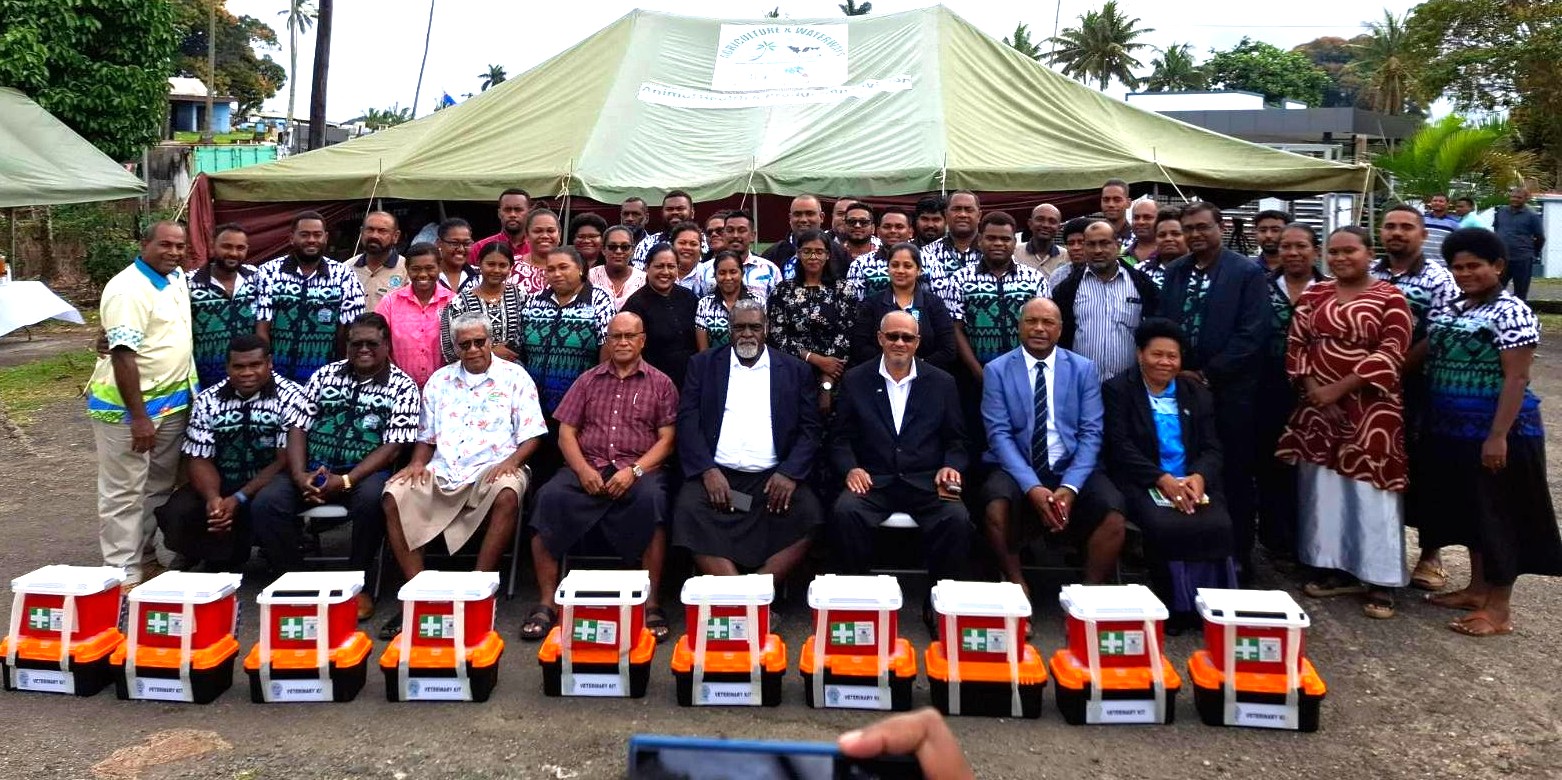VETERINARY KITS HANDOVER MARKS MAJOR BOOST FOR ANIMAL HEALTH SERVICES IN FIJI
July 11, 2025

The Ministry of Agriculture and Waterways reaffirmed its unwavering commitment to strengthening Fiji’s animal health sector with the official handover of veterinary clinical kits to Animal Health and Production Officers.
The handover ceremony, held at the Animal Health and Production (AH&P) Office in Vatuwaqa, was officiated by the Assistant Minister for Agriculture and Waterways, Hon. Tomasi Tunabuna, who hailed the occasion as a significant milestone in the Ministry’s ongoing mission to modernize veterinary services nationwide.
“Today is not just a handover, it is a promise,” said Hon. Tunabuna. “A promise that our Ministry stands firmly beside those on the frontlines of animal health. These kits are more than tools; they are instruments of change that empower our officers to serve with expertise, care, and compassion.”
The newly distributed veterinary kits include essential tools such as thermometers, suture kits, hygiene supplies, and clinical instruments, enabling officers to provide responsive and high-quality veterinary care in the field.
This marks a major advancement in Fiji’s ability to combat animal disease, reduce livestock mortality, and support rural livelihoods.
Over the past year, the Ministry has led an ambitious capacity-building program through its Animal Health and Production Division, offering para-veterinary training, clinical refresher courses, and meat inspection modules.
These efforts have been paired with nationwide renovations of veterinary clinics, featuring improved triage systems, enhanced drug storage facilities, stainless steel tools, and modern diagnostic equipment.
“Veterinary services are not a luxury; they are a necessity,” emphasized Hon. Tunabuna. “In a nation where livestock plays a central role in food security and income, timely veterinary care is crucial to community wellbeing.”
The initiative aligns with the Ministry’s broader vision to create a mobile, inclusive, and future-ready veterinary network.
By decentralizing services and taking veterinary care directly to farms and villages, the Ministry is working to ensure no community is left behind.
“Our officers deserve safe, professional, and well-equipped environments, and our farmers deserve top-quality care,” said Hon. Tunabuna. “We are building a system that reaches the most remote corners of Fiji.”
The Ministry assures the public that this is part of a sustained investment and pledges continued support for facility maintenance and service improvement to elevate animal health standards throughout the country.
ENDS
